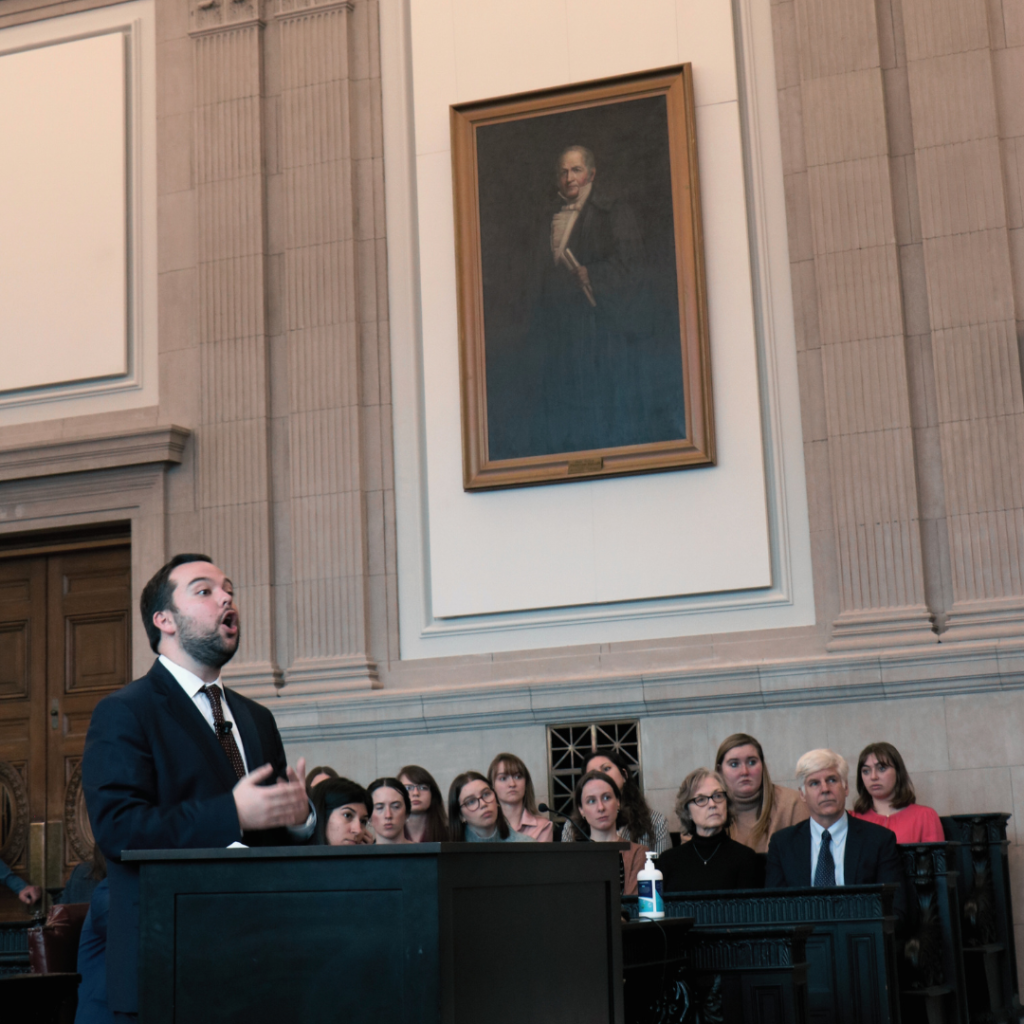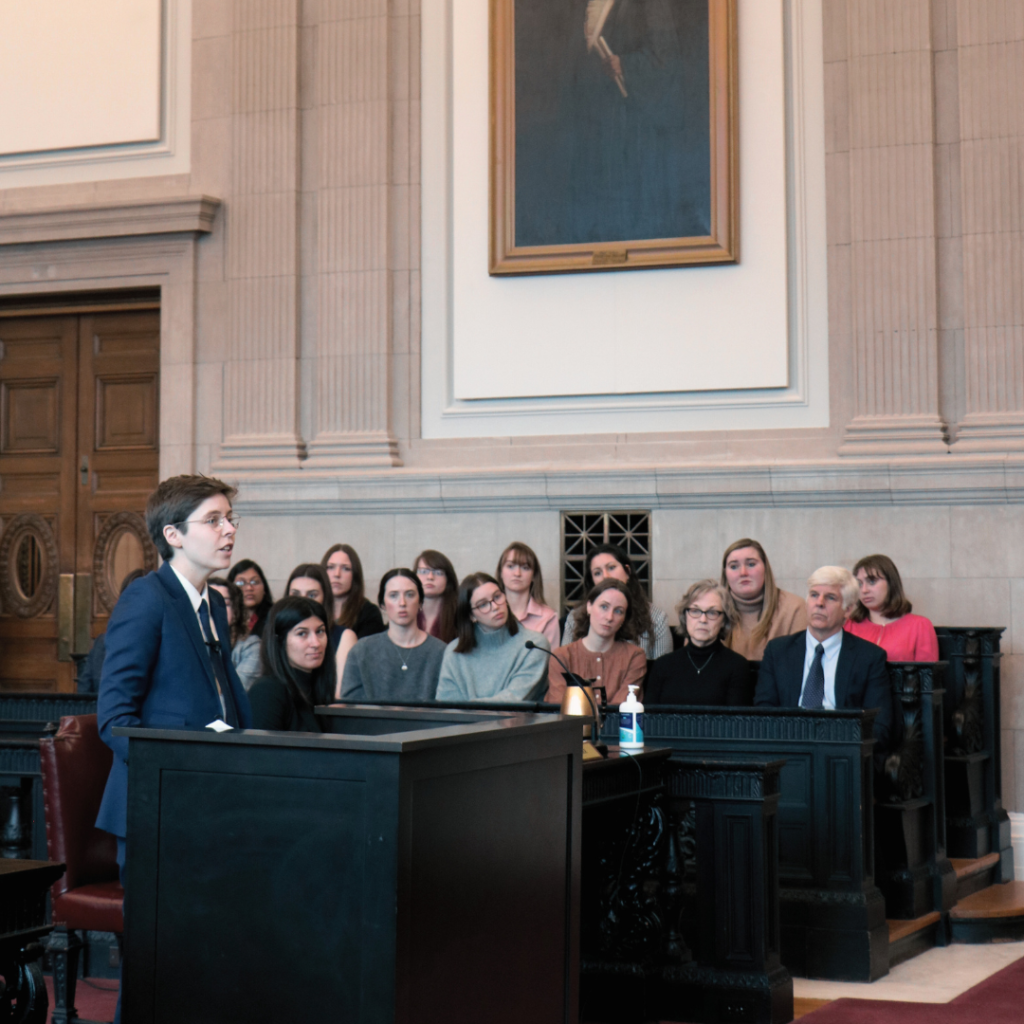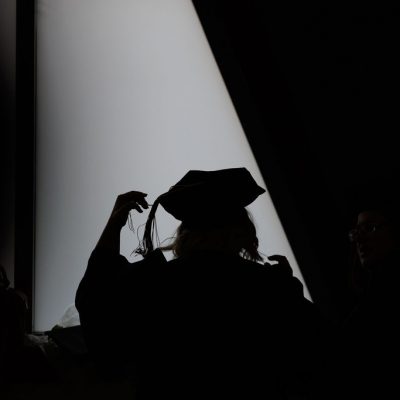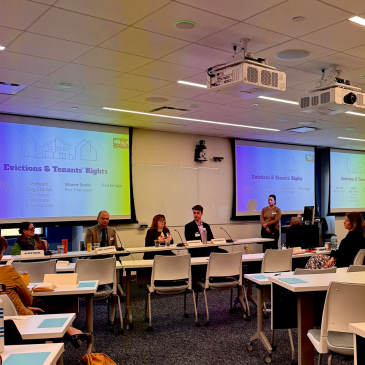“It was completely terrifying and completely enjoyable,” Leah Henry, 2L, said, neatly summarizing their experience delivering this year’s Prize Argument before Maine’s Supreme Court Justices.
Two second-year students are selected annually on the basis of the quality of their Moot Court tryouts to argue appellate briefs from their first year legal writing course before Maine’s Law Court. The briefs center around a hypothetical case based on one or several real cases connected to topical issues.
“The annual Prize Argument is an amazing opportunity for the Prize Arguers and is always an exciting event for all our students,” said Professor Angie Arey, who directs Maine Law’s Legal Writing and Moot Court programs. “Each year, we bring the entire first-year legal writing class to watch the argument, the timing of which coincides with the 1Ls preparing for their own oral arguments.”
This year’s problem centered on questions around social media and whether social media activity from a government official on their personal Twitter account constitutes state action. The fictional cases referenced Garnier v. O’Connor-Ratcliff and Lindke v. Freed, which both went before the U.S. Supreme Court in 2023.
Danny Hutchins, the other student selected to participate, said the experience was a highlight of his law school career. It was also an immense amount of work.
In the weeks prior to the arguments, the pair studied up on existing court cases and precedent relevant to their problem. They also practiced often in front of Arey, other legal writing professors and Maine Law staff — including former Prize Argument participants — and Maine Law Dean and President Leigh Saufley.
They prepared not just to present their arguments but also for potential lines of questioning from the Justices who, in the context of the simulation, were acting the role of U.S. Court of Appeals for the First Circuit. Maine Law has been very fortunate that the Justices of the Maine Supreme Judicial Court provide the time and energy every year to Maine Law students to make the Prize Argument as close to an actual appellate argument as possible.
“They asked a lot of questions about policy and the potential grander implications of the case,” Hutchins added. “But we were both prepared because Dean Saufley had raised those questions to us just the day before.”
For Hutchins, the exercise became less about the subject matter, which he is well-versed in, and more about the skills involved in oral advocacy and strategies involved in making effective oral arguments.
These are skills that both Henry and Hutchins continue to sharpen through their involvement in Moot Court competitions.
Both said that the Prize Argument exercise solidified their interest in practicing law with substantive policy implications, especially appellate law.
“I learned a lot through this process,” Henry reflected. “I learned that I can rise to the occasion and perform at a very high level, the highest of our law school career. And I learned that I have fun doing that.”
“I hope,” they added, “to be in front of the Maine Supreme Court Justices again.”
Professor Arey expressed her appreciation for the Maine Law faculty, staff, and alumni who joined her in judging those practice arguments: Maine Law Dean and President Leigh Saufley; Professor Sara Wolff; Director of Career Services Erika Kranz; alumni Nora Hanson (‘22 ), Ben Algeo (’23), Kelsey Cromie (’23), Fred Kerrigan (’23), and Teddy Simpson (’23); and former Prize Arguers Meryl Poulin (‘17), Trevor Savage (’17), and Maine Law’s Dean of Students Shea Watson (‘19).










